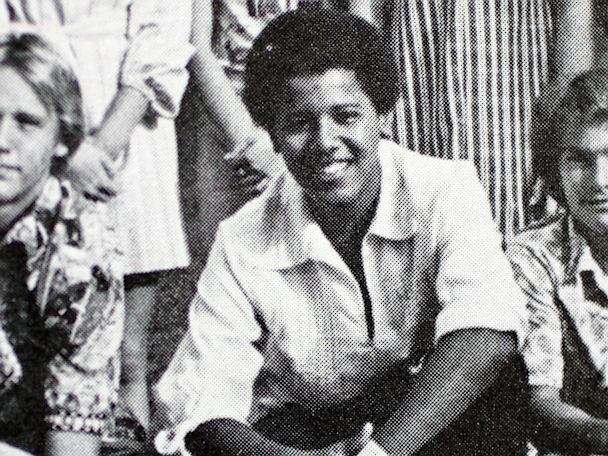Obama's Own Drug Use a Backdrop to More Lenient Sentences

Young Barack Obama (Credit: Punahoe Schools/AP Photo)
President Obama knows something about being a low-level, nonviolent drug offender, such as the kind the Justice Department today exempted from harsh mandatory prison sentences.
In a sense, he was one himself once, although the young Barry Obama was never arrested or charged with a crime.
Obama wrote openly in his 1995 memoir, "Dreams From My Father," about using marijuana and "maybe a little blow" during his high school days in Hawaii in the 1970s. Biographer David Maraniss reported that Obama was even a pot-smoking trend-setter and leader in the "Choom Gang."
But decades later, openly reflecting on the "stupid" choices he made, Obama has hinted that his career trajectory could have been different if he had been arrested and charged. A disproportionate number of young African-American men are put behind bars for low-level drug offenses, at 10 times the rate of whites, according to the NAACP.
It's against this backdrop of personal experience that Obama has been quietly retooling the government's five-decade "war on drugs," treating it more as a public health issue than a battle against crime. It's a shift that today came to the fore.
"With an outsized, unnecessarily large prison population, we need to ensure that incarceration is used to punish, deter and rehabilitate, not merely to warehouse and forget," Attorney General Eric Holder said in announcing the changes to mandatory minimum prison sentences for drug offenders.
The new sentencing guidelines are expected to dramatically diminish imprisonment of "low-level, nonviolent drug offenders who have no ties to large-scale organizations, gangs or cartels." Instead, offenders will get sentences "better suited to their individual conduct," including drug treatment and community service programs, says the Justice Department.
These changes come on top of Obama's directive last year that federal prosecutors should back off on individual, recreational users of certain drugs.
"We've got bigger fish to fry. I think that it would not make sense for us to see a top priority as going after recreational users in states that have determined that it's legal," Obama told ABC's Barbara Walters in December after Colorado and Washington state became the first states to approve the full recreational use and sale of marijuana.
The new approach to sentencing, and more lenient treatment of some recreational drug users, are in line with policies Obama has pushed since his first presidential campaign in 2008, when he declared that the "war on drugs was an utter failure."
Since taking office, Obama has rarely characterized the anti-drug campaign as a "war." Instead, he has emphasized the need to address systemic injustice in drug sentencing and focused on meeting the health care needs of addicts that would boost prevention.
The president's signature health care law - the Affordable Care Act - requires Medicaid and insurers participating in the new online exchanges to cover treatment for substance abuse disorders starting in 2014.
Obama's proposed 2014 budget includes a surge in spending on drug treatment and education programs, seeking $10.7 billion next year, up from $9.2 billion in 2012, which the White House touts as the "largest percentage increase in at least two decades." Meanwhile, the same budget proposal would slash by 20 percent spending on international drug control efforts and trim spending on interdiction.
"You know, my attitude is substance abuse generally is not good for our kids, not good for our society," Obama told Walters in December. "I am somebody who believes that the more we are emphasizing treatment, the more we're emphasizing a public health approach, the more likely we are to make progress."